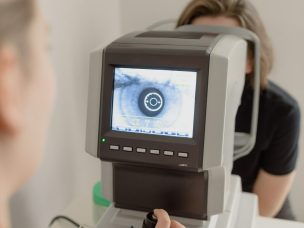Many barriers prevent patients with wet age-related macular degeneration (AMD) from adhering to their appointments. COVID-19 was a major barrier for many patients who did not want to risk leaving home for eye screening or follow-up appointments due to fear of catching the virus.
Transportation is an especially challenging barrier for patients with wet AMD. Moreoever, the cost and burden associated with anti-vascular endothelial growth factor therapy for these patients, the majority of which are elderly, are often very stressful. All of these barriers can lead to patients missing appointments.
This study sought to determine how patient adherence to treatment and appointment visits is associated with visual acuity. Participants were selected from 44 clinical trial centers over a one-year period. Two years of data were studied. Patients were instructed to visit the office one time every four weeks for treatment with bevacizumab or ranibizumab for a total of 26 visits.
Patient appointment adherence was measured by the number of missed appointments, the average number of days between visits (average days), the longest duration of days between visits (max days), and the constancy of visit adherence (at least one visit every 90 days). Average and max days were then further categorized as on time (28 – 35 days), late (36 – 60 days), and very late (more than 60 days).
The study revealed that the mean number of missed visits was 2.4. Overall, 92.6% of patients displayed visit constancy. Average days between visits were recorded as 90% on time, 9.2% late, and 0.8% very late. The late and very late groups for average and max days saw significantly fewer letters when tested for visual acuity than patients in the on-time group. These data suggest a strong correlation between patient appointment adherence and better visual acuity for patients with wet AMD.
A call to action is made for retina specialists to educate patients on the importance of appointment adherence for optimal visual acuity. Retina specialists must also reduce patient burden and discomfort associated with these visits to increase the likelihood that patients will keep future appointments [1].
Source:
[1] Ramakrishnan, M. S., Yu, Y., & VanderBeek, B. L. (2020). Association of Visit Adherence and Visual Acuity in Patients With Neovascular Age-Related Macular Degeneration. JAMA Ophthalmology, 138(3), 237. https://doi.org/10.1001/jamaophthalmol.2019.4577










